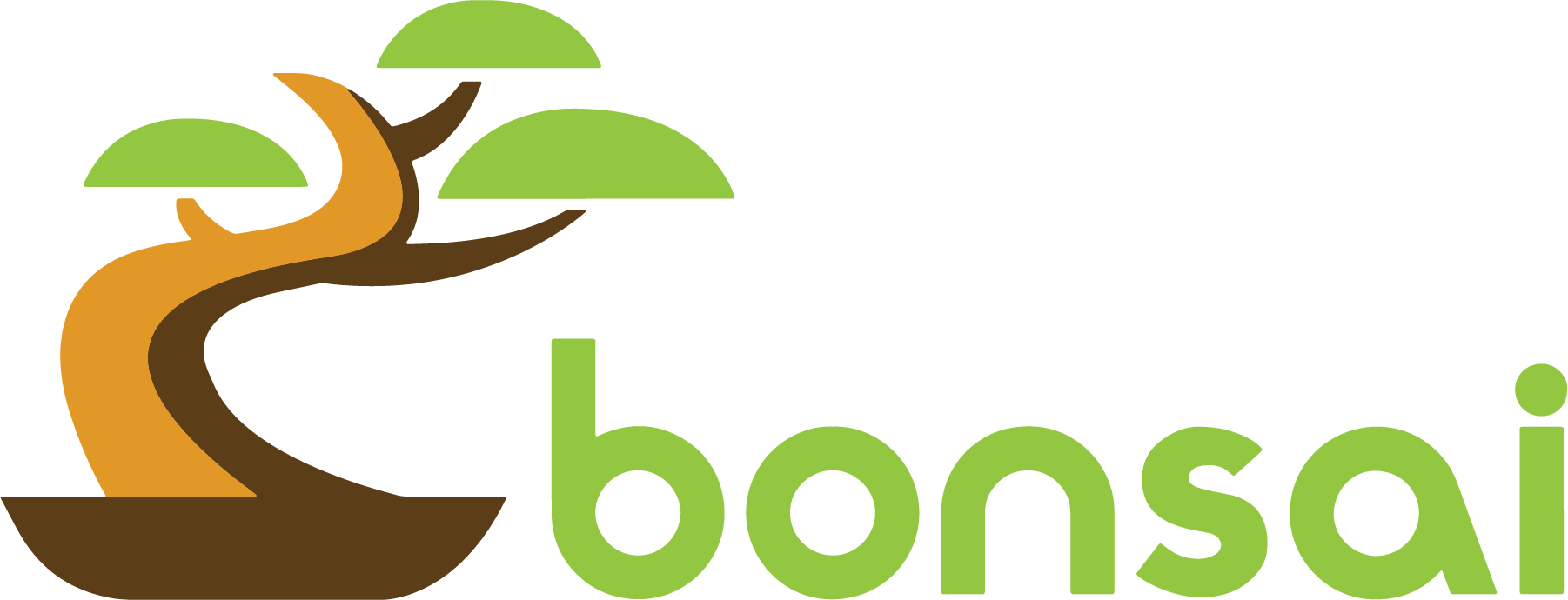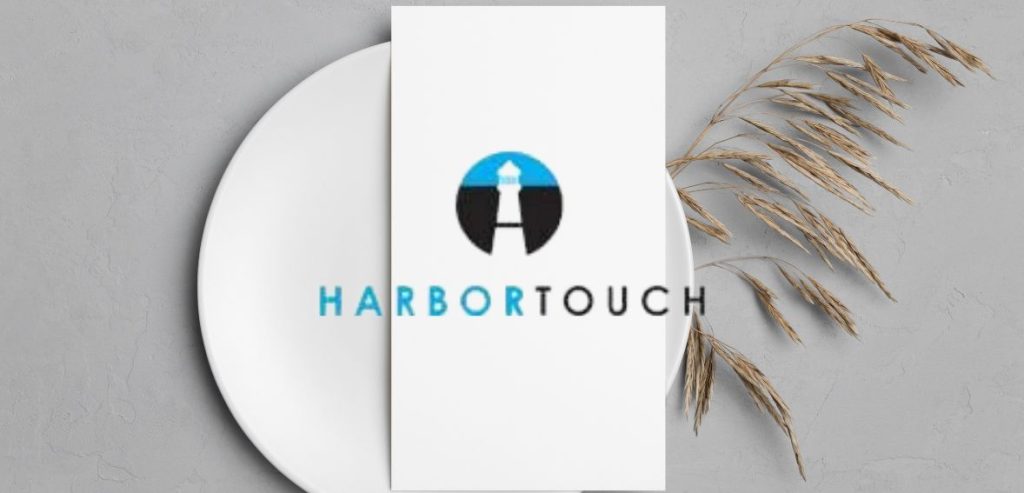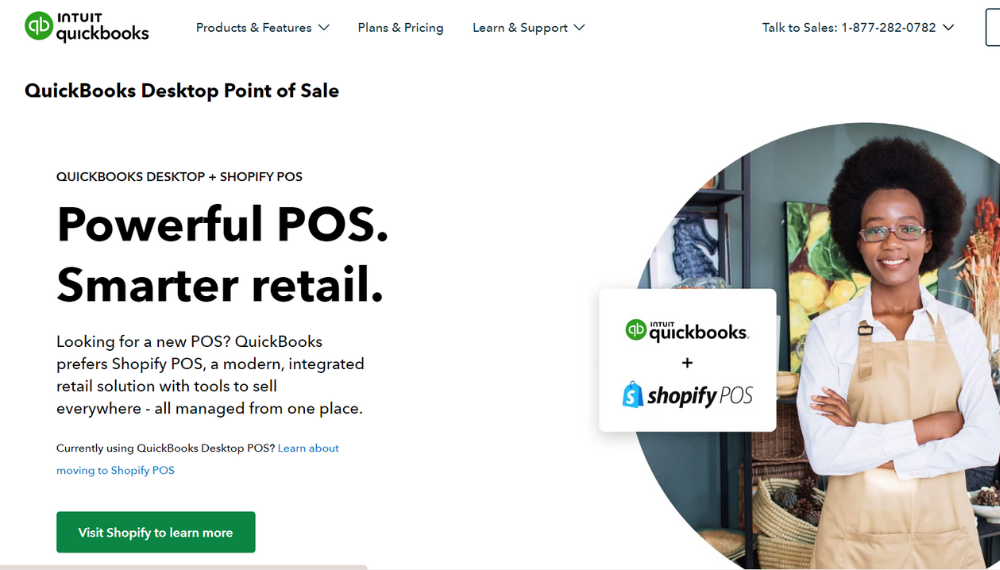Toast is a leading point of sale (POS) technology company offering integrated solutions for restaurants including a kitchen display system, mobile ordering and payment, payroll, and more. While Toast aims to make operations more seamless and efficient, there are also several capable Toast alternatives to consider based on unique features, integration, reporting, and cost.
Restaurants today have more POS options than ever before, from mobile-focused systems to robust platforms with every feature imaginable. However, not all solutions will meet the complex needs of a kitchen or budget. With Toast pricing starting at $99 per month and no long-term contracts, the potential to grow with the platform is appealing to those wanting to start simply.
For operators seeking additional modules for the front or back of the house, Toast also partners with and integrates several third-party services. A seamless, supported experience is central to their value proposition as an all-in-one solution. At the same time, single-purpose POS providers continue improving integrations and value, forcing Toast to further develop their platform and partnerships to maintain a competitive advantage.
This analysis aims to evaluate Toast not just on its product roadmap but also on major competitors in function, features, reporting, integration, and fees. While Toast fills a clear need in the market, alternatives exist at every price point with strengths that could potentially better suit certain concepts or budgets. Without an objective comparison of options, every restaurant is worth its investment but not necessarily the most strategic choice. Understanding key differentiators between the leading POS systems will help determine the best solution for your space and operational ecosystem.
 Bonsai is another full-featured POS system with an integrated suite of tools for restaurateurs. They aim to provide an end-to-end solution with everything needed to run a restaurant in one place, from ordering and payment to accounting, inventory, and more. Like Toast, Bonsai starts at an affordable monthly rate of $69 with no long-term contracts or hardware fees, allowing for easy setup and cancellation whenever needed.
Where Bonsai differentiates is a greater emphasis on workflow automation for faster, more efficient operations. Their POS includes tableside ordering, embedded live inventory management, and automated purchasing suggestions to minimize waste. Bonsai also partners with top suppliers to provide tailored, discounted rates for restaurateurs on everything from food and retail products to professional services.
While Toast focuses on seamless integrations, Bonsai has built its platform from the ground up with a microservices architecture, allowing for more customizable workflows and partnerships. Bonsai integrates with over 300 third-party services versus Toast's ~50, providing more options for extending functionality based on need. They also provide more reporting features out of the box for real-time visibility into KPIs, with additional analytics and automation available.
Bonsai is best suited for fast-paced restaurants wanting to streamline processes wherever possible through intuitive features and automation. Their platform, partnerships, and flexible integrations can help reduce costs, minimize waste, and improve the guest experience with data-driven insights. However, some operators may find their built-in solutions too rigid or limited in customizable configurations versus Toast. There is also a steeper learning curve to truly optimize the platform versus straightforward setup and ease of use with Toast.
Bonsai fills a clear need in the market for highly automated, data-rich POS systems at an affordable price. While not the strongest fit for every concept, Bonsai's streamlined, optimized approach could be compelling for high-volume restaurants looking to gain a competitive advantage through technology. An in-depth product trial is recommended to determine if the trade-off of flexibility is worth the potential efficiencies that come with Bonsai versus Toast.
Bonsai is another full-featured POS system with an integrated suite of tools for restaurateurs. They aim to provide an end-to-end solution with everything needed to run a restaurant in one place, from ordering and payment to accounting, inventory, and more. Like Toast, Bonsai starts at an affordable monthly rate of $69 with no long-term contracts or hardware fees, allowing for easy setup and cancellation whenever needed.
Where Bonsai differentiates is a greater emphasis on workflow automation for faster, more efficient operations. Their POS includes tableside ordering, embedded live inventory management, and automated purchasing suggestions to minimize waste. Bonsai also partners with top suppliers to provide tailored, discounted rates for restaurateurs on everything from food and retail products to professional services.
While Toast focuses on seamless integrations, Bonsai has built its platform from the ground up with a microservices architecture, allowing for more customizable workflows and partnerships. Bonsai integrates with over 300 third-party services versus Toast's ~50, providing more options for extending functionality based on need. They also provide more reporting features out of the box for real-time visibility into KPIs, with additional analytics and automation available.
Bonsai is best suited for fast-paced restaurants wanting to streamline processes wherever possible through intuitive features and automation. Their platform, partnerships, and flexible integrations can help reduce costs, minimize waste, and improve the guest experience with data-driven insights. However, some operators may find their built-in solutions too rigid or limited in customizable configurations versus Toast. There is also a steeper learning curve to truly optimize the platform versus straightforward setup and ease of use with Toast.
Bonsai fills a clear need in the market for highly automated, data-rich POS systems at an affordable price. While not the strongest fit for every concept, Bonsai's streamlined, optimized approach could be compelling for high-volume restaurants looking to gain a competitive advantage through technology. An in-depth product trial is recommended to determine if the trade-off of flexibility is worth the potential efficiencies that come with Bonsai versus Toast.
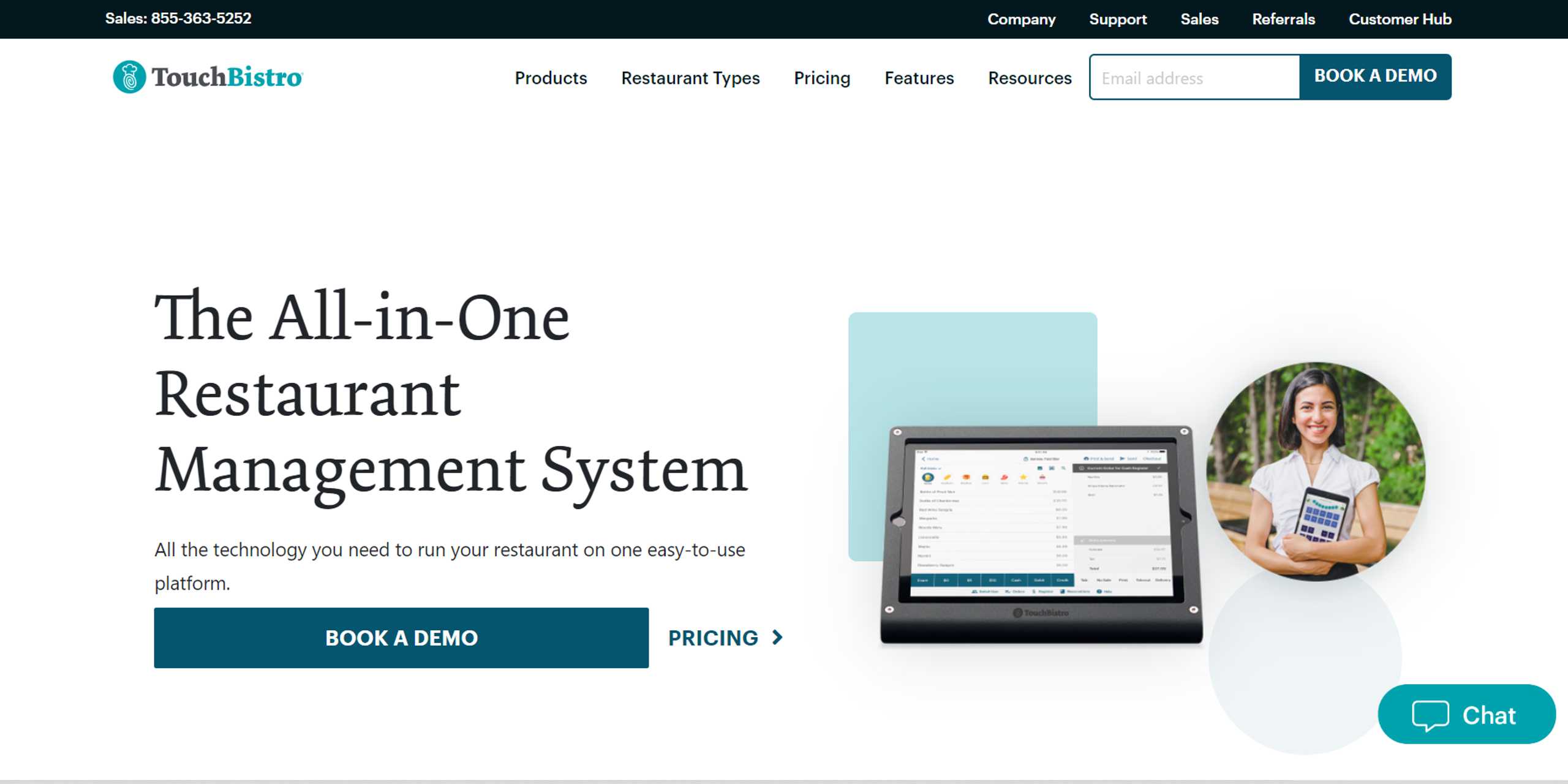 TouchBistro is another full-featured POS system aiming to provide restaurateurs with an end-to-end management solution. Like Toast, they offer affordable monthly pricing starting at $69 with no long-term contracts or upfront fees, however, their focus is streamlining the guest experience through engaging tableside technology.
TouchBistro tableside tablets make it easy for servers to present menus, take orders, process payments and capture guest feedback directly at the table. Their mobile POS also allows for ordering anywhere in the space. These features provide faster, more personalized service while minimizing errors. TouchBistro also taps into guest data and reviews to improve menu designs, develop loyal customers, and enhance the brand reputation.
Where TouchBistro falls short compared to Toast is limited integrations with third-party services and reporting capabilities. They do not currently provide the options to extend functionality or gain additional business insights. TouchBistro is really tailored to enhancing the guest journey, not so much front or back-of-house operations. Some restaurants may find their singular focus too narrow, preferring a platform like Toast that aims to meet all key needs under one integrated solution.
TouchBistro is ideal for concepts wanting to provide guests with an exceptional experience through thoughtful technology and mobile functionality. Tableside ordering, payments, and feedback collection can help set a restaurant apart and build customer loyalty like nothing else. Their streamlined, guest-centric design would benefit restaurants focusing on those priorities above all else. However, for operators needing robust features beyond mobility and engagement, Toast or a similar platform may ultimately prove the stronger choice.
An in-depth product evaluation is recommended to determine if TouchBistro's compelling guest experience is enough to offset potential limitations versus a system aiming for further scope. For some restaurants, TouchBistro could be the perfect POS for the needs they have today, while Toast provides more room to grow into additional modules over time-based on budget and priorities. The right solution comes down to requirements, not promises.
TouchBistro is another full-featured POS system aiming to provide restaurateurs with an end-to-end management solution. Like Toast, they offer affordable monthly pricing starting at $69 with no long-term contracts or upfront fees, however, their focus is streamlining the guest experience through engaging tableside technology.
TouchBistro tableside tablets make it easy for servers to present menus, take orders, process payments and capture guest feedback directly at the table. Their mobile POS also allows for ordering anywhere in the space. These features provide faster, more personalized service while minimizing errors. TouchBistro also taps into guest data and reviews to improve menu designs, develop loyal customers, and enhance the brand reputation.
Where TouchBistro falls short compared to Toast is limited integrations with third-party services and reporting capabilities. They do not currently provide the options to extend functionality or gain additional business insights. TouchBistro is really tailored to enhancing the guest journey, not so much front or back-of-house operations. Some restaurants may find their singular focus too narrow, preferring a platform like Toast that aims to meet all key needs under one integrated solution.
TouchBistro is ideal for concepts wanting to provide guests with an exceptional experience through thoughtful technology and mobile functionality. Tableside ordering, payments, and feedback collection can help set a restaurant apart and build customer loyalty like nothing else. Their streamlined, guest-centric design would benefit restaurants focusing on those priorities above all else. However, for operators needing robust features beyond mobility and engagement, Toast or a similar platform may ultimately prove the stronger choice.
An in-depth product evaluation is recommended to determine if TouchBistro's compelling guest experience is enough to offset potential limitations versus a system aiming for further scope. For some restaurants, TouchBistro could be the perfect POS for the needs they have today, while Toast provides more room to grow into additional modules over time-based on budget and priorities. The right solution comes down to requirements, not promises.
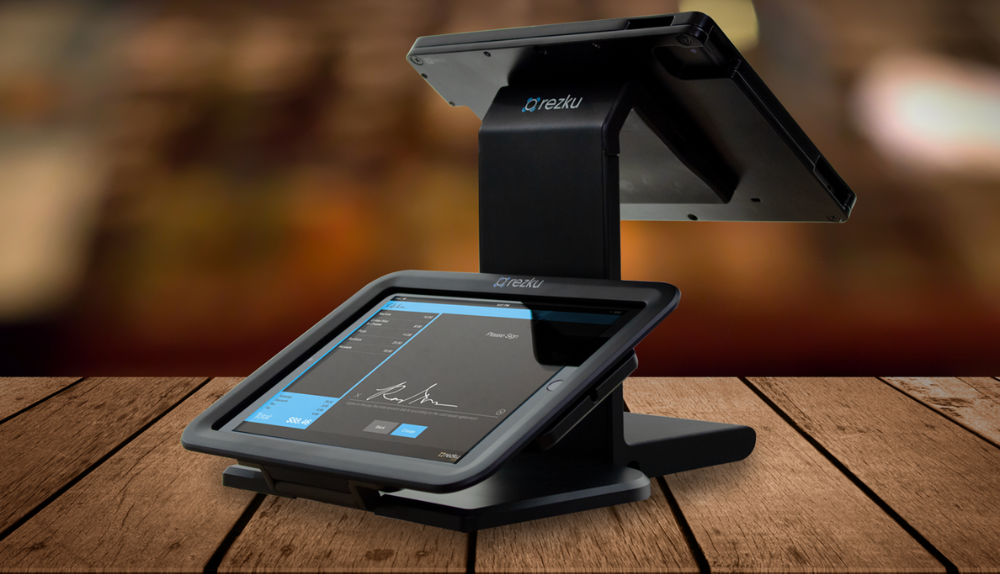 Rezku is a cloud-based POS and management system tailored to small to midsize restaurants looking for an affordable yet robust solution. Like Toast, they offer monthly pricing starting at $69 with no long-term contracts or upfront fees, however, Rezku focuses more on features and scaling for a lower overall cost of ownership.
Where Rezku stands out the most is its inventory management, reporting, and integration options. They provide dynamic inventory tracking, purchasing suggestions to minimize waste, and key metric reporting to benchmark performance, all in an easy-to-use interface. Rezku also integrates with over 250 third-party services including accounting, loyalty, delivery, and more - more than Toast's limited partnerships. This allows for easy extension of capabilities and automation of critical workflows at each restaurant's pace.
Rezku's strong inventory and reporting features combined with flexible, cost-effective integrations aim to reduce costs, improve margins and provide data-driven insights for smarter business decisions versus Toast. Some operators may find customization options too stringent or limited, preferring Toast's balance of robust features with ample flexibility to configure settings as needed for unique operations. Rezku also lacks Toast's dedicated restaurant experience and brand, which could be meaningful for some concepts.
Rezku fills a clear need in the market for an affordable yet sophisticated POS and management solution, however, their approach may ultimately prove too rigid or narrow for certain types of restaurants versus Toast's scope under one scalable, customizable platform. The unparalleled integrations and insights Rezku can provide at a lower total cost of ownership could be extremely compelling for fast-growing concepts on a tight budget, but not necessarily for diversifying operations.
A product evaluation considering your key requirements, priorities, and business goals is recommended to determine if Rezku's focus on features, cost, and data could satisfy needs where Toast falls short, or if their limitations make the platform unsuitable despite attractive pricing and integrations. Rezku aims to meet most restaurants with essential capabilities and room to grow, but the ideal solution depends on ensuring everything aligns with how you operate versus hopes of what could be.
Rezku is a cloud-based POS and management system tailored to small to midsize restaurants looking for an affordable yet robust solution. Like Toast, they offer monthly pricing starting at $69 with no long-term contracts or upfront fees, however, Rezku focuses more on features and scaling for a lower overall cost of ownership.
Where Rezku stands out the most is its inventory management, reporting, and integration options. They provide dynamic inventory tracking, purchasing suggestions to minimize waste, and key metric reporting to benchmark performance, all in an easy-to-use interface. Rezku also integrates with over 250 third-party services including accounting, loyalty, delivery, and more - more than Toast's limited partnerships. This allows for easy extension of capabilities and automation of critical workflows at each restaurant's pace.
Rezku's strong inventory and reporting features combined with flexible, cost-effective integrations aim to reduce costs, improve margins and provide data-driven insights for smarter business decisions versus Toast. Some operators may find customization options too stringent or limited, preferring Toast's balance of robust features with ample flexibility to configure settings as needed for unique operations. Rezku also lacks Toast's dedicated restaurant experience and brand, which could be meaningful for some concepts.
Rezku fills a clear need in the market for an affordable yet sophisticated POS and management solution, however, their approach may ultimately prove too rigid or narrow for certain types of restaurants versus Toast's scope under one scalable, customizable platform. The unparalleled integrations and insights Rezku can provide at a lower total cost of ownership could be extremely compelling for fast-growing concepts on a tight budget, but not necessarily for diversifying operations.
A product evaluation considering your key requirements, priorities, and business goals is recommended to determine if Rezku's focus on features, cost, and data could satisfy needs where Toast falls short, or if their limitations make the platform unsuitable despite attractive pricing and integrations. Rezku aims to meet most restaurants with essential capabilities and room to grow, but the ideal solution depends on ensuring everything aligns with how you operate versus hopes of what could be.
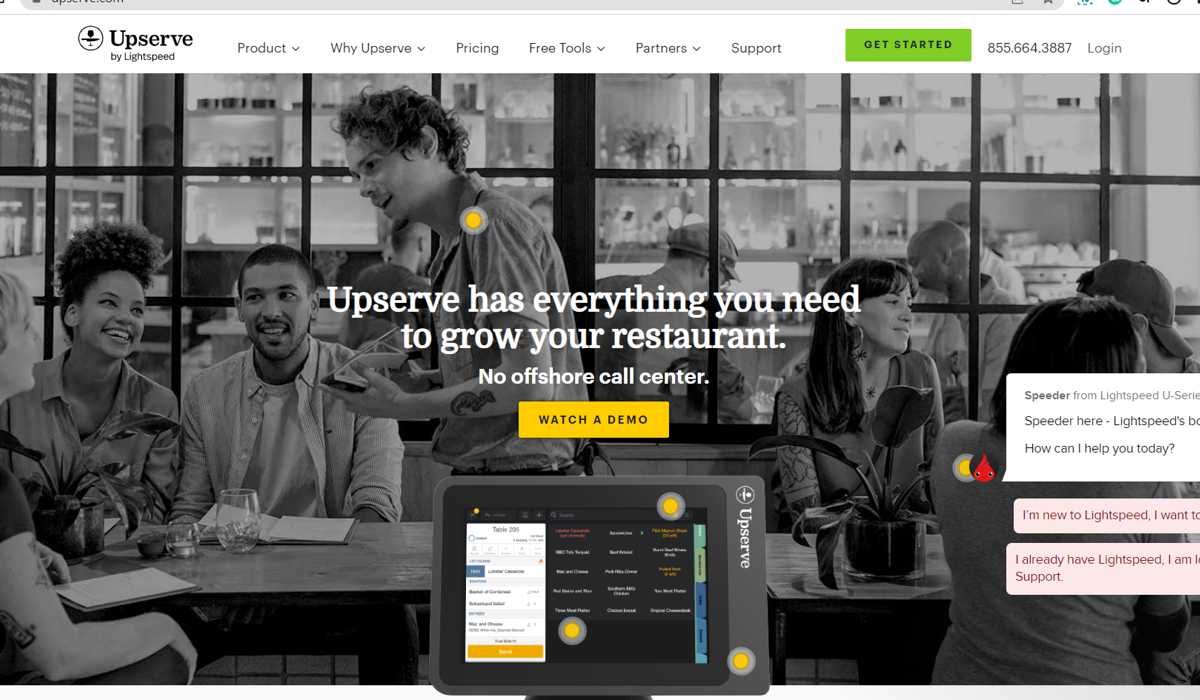 Upserve is a cloud-based POS and management solution aimed at simplifying operations for small businesses. Like Toast, they offer affordable monthly pricing starting at $69 with no long-term contracts, however, Upserve focuses on ease of use over integrations. Their simple yet robust platform provides just the essential features most restaurants need without complicating the experience.
Upserve makes it easy to manage inventory, process payments, send digital receipts, and capture valuable customer data. They do not currently provide the extensive integrations of Rezku, automation of Bonsai, or streamlined guest technology of TouchBistro. Upserve really is tailored to getting restaurants up and running with a straightforward POS system so they can focus on running the business, not complex configurations or features. Some operators may find customization limitations too rigid once scaling operations or want additional modules for front/back end management. Upserve also lacks Toast's dedicated restaurant brand and experience.
Upserve fills a clear need in the market for an easy-to-use, affordable POS solution with enough core features for basic management, however, their minimalist approach may ultimately prove too narrow for most restaurants versus robust, scalable platforms like Toast. The plug-and-play setup, low cost of ownership, and minimal complexity of Upserve could be exactly what is needed to quickly get a new concept off the ground, but not necessarily for sustainable growth over the long run.
An evaluation of requirements based on where the business is today as well as where it's going would determine if Upserve's simplicity and affordability alone suffice, or if limitations may force a premature swap for another solution if core operations or needs change. Upserve aims to provide essential functions at the lowest cost with minimum hassle, which serves some restaurants well but not necessarily those with diversifying models or priorities over time.
Some concepts launching lean may find Upserve perfect for current needs and budget, hoping to outgrow or integrate additional modules down the road as optional add-ons rather than mandatory charge increases if upgrading to another full platform. For others, the total cost of transitioning versus maintaining an incomplete solution from the start may ultimately prove more significant. There are good arguments on multiple sides of this decision depending on operational scope, goals, and risk tolerance.
Thoughtful consideration of requirements today versus tomorrow, affordable flexibility versus integration complexity, and implicit costs of swapping solutions for changing needs will determine if Upserve stands up to the long-term strategy of your concept - or if another platform may serve greater strategic advantage despite higher upfront investment. The ideal POS depends on aligning capabilities and cost versus limited promises of simplicity and low cost alone.
Upserve is a cloud-based POS and management solution aimed at simplifying operations for small businesses. Like Toast, they offer affordable monthly pricing starting at $69 with no long-term contracts, however, Upserve focuses on ease of use over integrations. Their simple yet robust platform provides just the essential features most restaurants need without complicating the experience.
Upserve makes it easy to manage inventory, process payments, send digital receipts, and capture valuable customer data. They do not currently provide the extensive integrations of Rezku, automation of Bonsai, or streamlined guest technology of TouchBistro. Upserve really is tailored to getting restaurants up and running with a straightforward POS system so they can focus on running the business, not complex configurations or features. Some operators may find customization limitations too rigid once scaling operations or want additional modules for front/back end management. Upserve also lacks Toast's dedicated restaurant brand and experience.
Upserve fills a clear need in the market for an easy-to-use, affordable POS solution with enough core features for basic management, however, their minimalist approach may ultimately prove too narrow for most restaurants versus robust, scalable platforms like Toast. The plug-and-play setup, low cost of ownership, and minimal complexity of Upserve could be exactly what is needed to quickly get a new concept off the ground, but not necessarily for sustainable growth over the long run.
An evaluation of requirements based on where the business is today as well as where it's going would determine if Upserve's simplicity and affordability alone suffice, or if limitations may force a premature swap for another solution if core operations or needs change. Upserve aims to provide essential functions at the lowest cost with minimum hassle, which serves some restaurants well but not necessarily those with diversifying models or priorities over time.
Some concepts launching lean may find Upserve perfect for current needs and budget, hoping to outgrow or integrate additional modules down the road as optional add-ons rather than mandatory charge increases if upgrading to another full platform. For others, the total cost of transitioning versus maintaining an incomplete solution from the start may ultimately prove more significant. There are good arguments on multiple sides of this decision depending on operational scope, goals, and risk tolerance.
Thoughtful consideration of requirements today versus tomorrow, affordable flexibility versus integration complexity, and implicit costs of swapping solutions for changing needs will determine if Upserve stands up to the long-term strategy of your concept - or if another platform may serve greater strategic advantage despite higher upfront investment. The ideal POS depends on aligning capabilities and cost versus limited promises of simplicity and low cost alone.
Top Toast Alternatives
Bonsai
 Bonsai is another full-featured POS system with an integrated suite of tools for restaurateurs. They aim to provide an end-to-end solution with everything needed to run a restaurant in one place, from ordering and payment to accounting, inventory, and more. Like Toast, Bonsai starts at an affordable monthly rate of $69 with no long-term contracts or hardware fees, allowing for easy setup and cancellation whenever needed.
Where Bonsai differentiates is a greater emphasis on workflow automation for faster, more efficient operations. Their POS includes tableside ordering, embedded live inventory management, and automated purchasing suggestions to minimize waste. Bonsai also partners with top suppliers to provide tailored, discounted rates for restaurateurs on everything from food and retail products to professional services.
While Toast focuses on seamless integrations, Bonsai has built its platform from the ground up with a microservices architecture, allowing for more customizable workflows and partnerships. Bonsai integrates with over 300 third-party services versus Toast's ~50, providing more options for extending functionality based on need. They also provide more reporting features out of the box for real-time visibility into KPIs, with additional analytics and automation available.
Bonsai is best suited for fast-paced restaurants wanting to streamline processes wherever possible through intuitive features and automation. Their platform, partnerships, and flexible integrations can help reduce costs, minimize waste, and improve the guest experience with data-driven insights. However, some operators may find their built-in solutions too rigid or limited in customizable configurations versus Toast. There is also a steeper learning curve to truly optimize the platform versus straightforward setup and ease of use with Toast.
Bonsai fills a clear need in the market for highly automated, data-rich POS systems at an affordable price. While not the strongest fit for every concept, Bonsai's streamlined, optimized approach could be compelling for high-volume restaurants looking to gain a competitive advantage through technology. An in-depth product trial is recommended to determine if the trade-off of flexibility is worth the potential efficiencies that come with Bonsai versus Toast.
Bonsai is another full-featured POS system with an integrated suite of tools for restaurateurs. They aim to provide an end-to-end solution with everything needed to run a restaurant in one place, from ordering and payment to accounting, inventory, and more. Like Toast, Bonsai starts at an affordable monthly rate of $69 with no long-term contracts or hardware fees, allowing for easy setup and cancellation whenever needed.
Where Bonsai differentiates is a greater emphasis on workflow automation for faster, more efficient operations. Their POS includes tableside ordering, embedded live inventory management, and automated purchasing suggestions to minimize waste. Bonsai also partners with top suppliers to provide tailored, discounted rates for restaurateurs on everything from food and retail products to professional services.
While Toast focuses on seamless integrations, Bonsai has built its platform from the ground up with a microservices architecture, allowing for more customizable workflows and partnerships. Bonsai integrates with over 300 third-party services versus Toast's ~50, providing more options for extending functionality based on need. They also provide more reporting features out of the box for real-time visibility into KPIs, with additional analytics and automation available.
Bonsai is best suited for fast-paced restaurants wanting to streamline processes wherever possible through intuitive features and automation. Their platform, partnerships, and flexible integrations can help reduce costs, minimize waste, and improve the guest experience with data-driven insights. However, some operators may find their built-in solutions too rigid or limited in customizable configurations versus Toast. There is also a steeper learning curve to truly optimize the platform versus straightforward setup and ease of use with Toast.
Bonsai fills a clear need in the market for highly automated, data-rich POS systems at an affordable price. While not the strongest fit for every concept, Bonsai's streamlined, optimized approach could be compelling for high-volume restaurants looking to gain a competitive advantage through technology. An in-depth product trial is recommended to determine if the trade-off of flexibility is worth the potential efficiencies that come with Bonsai versus Toast.
TouchBistro
 TouchBistro is another full-featured POS system aiming to provide restaurateurs with an end-to-end management solution. Like Toast, they offer affordable monthly pricing starting at $69 with no long-term contracts or upfront fees, however, their focus is streamlining the guest experience through engaging tableside technology.
TouchBistro tableside tablets make it easy for servers to present menus, take orders, process payments and capture guest feedback directly at the table. Their mobile POS also allows for ordering anywhere in the space. These features provide faster, more personalized service while minimizing errors. TouchBistro also taps into guest data and reviews to improve menu designs, develop loyal customers, and enhance the brand reputation.
Where TouchBistro falls short compared to Toast is limited integrations with third-party services and reporting capabilities. They do not currently provide the options to extend functionality or gain additional business insights. TouchBistro is really tailored to enhancing the guest journey, not so much front or back-of-house operations. Some restaurants may find their singular focus too narrow, preferring a platform like Toast that aims to meet all key needs under one integrated solution.
TouchBistro is ideal for concepts wanting to provide guests with an exceptional experience through thoughtful technology and mobile functionality. Tableside ordering, payments, and feedback collection can help set a restaurant apart and build customer loyalty like nothing else. Their streamlined, guest-centric design would benefit restaurants focusing on those priorities above all else. However, for operators needing robust features beyond mobility and engagement, Toast or a similar platform may ultimately prove the stronger choice.
An in-depth product evaluation is recommended to determine if TouchBistro's compelling guest experience is enough to offset potential limitations versus a system aiming for further scope. For some restaurants, TouchBistro could be the perfect POS for the needs they have today, while Toast provides more room to grow into additional modules over time-based on budget and priorities. The right solution comes down to requirements, not promises.
TouchBistro is another full-featured POS system aiming to provide restaurateurs with an end-to-end management solution. Like Toast, they offer affordable monthly pricing starting at $69 with no long-term contracts or upfront fees, however, their focus is streamlining the guest experience through engaging tableside technology.
TouchBistro tableside tablets make it easy for servers to present menus, take orders, process payments and capture guest feedback directly at the table. Their mobile POS also allows for ordering anywhere in the space. These features provide faster, more personalized service while minimizing errors. TouchBistro also taps into guest data and reviews to improve menu designs, develop loyal customers, and enhance the brand reputation.
Where TouchBistro falls short compared to Toast is limited integrations with third-party services and reporting capabilities. They do not currently provide the options to extend functionality or gain additional business insights. TouchBistro is really tailored to enhancing the guest journey, not so much front or back-of-house operations. Some restaurants may find their singular focus too narrow, preferring a platform like Toast that aims to meet all key needs under one integrated solution.
TouchBistro is ideal for concepts wanting to provide guests with an exceptional experience through thoughtful technology and mobile functionality. Tableside ordering, payments, and feedback collection can help set a restaurant apart and build customer loyalty like nothing else. Their streamlined, guest-centric design would benefit restaurants focusing on those priorities above all else. However, for operators needing robust features beyond mobility and engagement, Toast or a similar platform may ultimately prove the stronger choice.
An in-depth product evaluation is recommended to determine if TouchBistro's compelling guest experience is enough to offset potential limitations versus a system aiming for further scope. For some restaurants, TouchBistro could be the perfect POS for the needs they have today, while Toast provides more room to grow into additional modules over time-based on budget and priorities. The right solution comes down to requirements, not promises.
Rezku
 Rezku is a cloud-based POS and management system tailored to small to midsize restaurants looking for an affordable yet robust solution. Like Toast, they offer monthly pricing starting at $69 with no long-term contracts or upfront fees, however, Rezku focuses more on features and scaling for a lower overall cost of ownership.
Where Rezku stands out the most is its inventory management, reporting, and integration options. They provide dynamic inventory tracking, purchasing suggestions to minimize waste, and key metric reporting to benchmark performance, all in an easy-to-use interface. Rezku also integrates with over 250 third-party services including accounting, loyalty, delivery, and more - more than Toast's limited partnerships. This allows for easy extension of capabilities and automation of critical workflows at each restaurant's pace.
Rezku's strong inventory and reporting features combined with flexible, cost-effective integrations aim to reduce costs, improve margins and provide data-driven insights for smarter business decisions versus Toast. Some operators may find customization options too stringent or limited, preferring Toast's balance of robust features with ample flexibility to configure settings as needed for unique operations. Rezku also lacks Toast's dedicated restaurant experience and brand, which could be meaningful for some concepts.
Rezku fills a clear need in the market for an affordable yet sophisticated POS and management solution, however, their approach may ultimately prove too rigid or narrow for certain types of restaurants versus Toast's scope under one scalable, customizable platform. The unparalleled integrations and insights Rezku can provide at a lower total cost of ownership could be extremely compelling for fast-growing concepts on a tight budget, but not necessarily for diversifying operations.
A product evaluation considering your key requirements, priorities, and business goals is recommended to determine if Rezku's focus on features, cost, and data could satisfy needs where Toast falls short, or if their limitations make the platform unsuitable despite attractive pricing and integrations. Rezku aims to meet most restaurants with essential capabilities and room to grow, but the ideal solution depends on ensuring everything aligns with how you operate versus hopes of what could be.
Rezku is a cloud-based POS and management system tailored to small to midsize restaurants looking for an affordable yet robust solution. Like Toast, they offer monthly pricing starting at $69 with no long-term contracts or upfront fees, however, Rezku focuses more on features and scaling for a lower overall cost of ownership.
Where Rezku stands out the most is its inventory management, reporting, and integration options. They provide dynamic inventory tracking, purchasing suggestions to minimize waste, and key metric reporting to benchmark performance, all in an easy-to-use interface. Rezku also integrates with over 250 third-party services including accounting, loyalty, delivery, and more - more than Toast's limited partnerships. This allows for easy extension of capabilities and automation of critical workflows at each restaurant's pace.
Rezku's strong inventory and reporting features combined with flexible, cost-effective integrations aim to reduce costs, improve margins and provide data-driven insights for smarter business decisions versus Toast. Some operators may find customization options too stringent or limited, preferring Toast's balance of robust features with ample flexibility to configure settings as needed for unique operations. Rezku also lacks Toast's dedicated restaurant experience and brand, which could be meaningful for some concepts.
Rezku fills a clear need in the market for an affordable yet sophisticated POS and management solution, however, their approach may ultimately prove too rigid or narrow for certain types of restaurants versus Toast's scope under one scalable, customizable platform. The unparalleled integrations and insights Rezku can provide at a lower total cost of ownership could be extremely compelling for fast-growing concepts on a tight budget, but not necessarily for diversifying operations.
A product evaluation considering your key requirements, priorities, and business goals is recommended to determine if Rezku's focus on features, cost, and data could satisfy needs where Toast falls short, or if their limitations make the platform unsuitable despite attractive pricing and integrations. Rezku aims to meet most restaurants with essential capabilities and room to grow, but the ideal solution depends on ensuring everything aligns with how you operate versus hopes of what could be.
Upserve
 Upserve is a cloud-based POS and management solution aimed at simplifying operations for small businesses. Like Toast, they offer affordable monthly pricing starting at $69 with no long-term contracts, however, Upserve focuses on ease of use over integrations. Their simple yet robust platform provides just the essential features most restaurants need without complicating the experience.
Upserve makes it easy to manage inventory, process payments, send digital receipts, and capture valuable customer data. They do not currently provide the extensive integrations of Rezku, automation of Bonsai, or streamlined guest technology of TouchBistro. Upserve really is tailored to getting restaurants up and running with a straightforward POS system so they can focus on running the business, not complex configurations or features. Some operators may find customization limitations too rigid once scaling operations or want additional modules for front/back end management. Upserve also lacks Toast's dedicated restaurant brand and experience.
Upserve fills a clear need in the market for an easy-to-use, affordable POS solution with enough core features for basic management, however, their minimalist approach may ultimately prove too narrow for most restaurants versus robust, scalable platforms like Toast. The plug-and-play setup, low cost of ownership, and minimal complexity of Upserve could be exactly what is needed to quickly get a new concept off the ground, but not necessarily for sustainable growth over the long run.
An evaluation of requirements based on where the business is today as well as where it's going would determine if Upserve's simplicity and affordability alone suffice, or if limitations may force a premature swap for another solution if core operations or needs change. Upserve aims to provide essential functions at the lowest cost with minimum hassle, which serves some restaurants well but not necessarily those with diversifying models or priorities over time.
Some concepts launching lean may find Upserve perfect for current needs and budget, hoping to outgrow or integrate additional modules down the road as optional add-ons rather than mandatory charge increases if upgrading to another full platform. For others, the total cost of transitioning versus maintaining an incomplete solution from the start may ultimately prove more significant. There are good arguments on multiple sides of this decision depending on operational scope, goals, and risk tolerance.
Thoughtful consideration of requirements today versus tomorrow, affordable flexibility versus integration complexity, and implicit costs of swapping solutions for changing needs will determine if Upserve stands up to the long-term strategy of your concept - or if another platform may serve greater strategic advantage despite higher upfront investment. The ideal POS depends on aligning capabilities and cost versus limited promises of simplicity and low cost alone.
Upserve is a cloud-based POS and management solution aimed at simplifying operations for small businesses. Like Toast, they offer affordable monthly pricing starting at $69 with no long-term contracts, however, Upserve focuses on ease of use over integrations. Their simple yet robust platform provides just the essential features most restaurants need without complicating the experience.
Upserve makes it easy to manage inventory, process payments, send digital receipts, and capture valuable customer data. They do not currently provide the extensive integrations of Rezku, automation of Bonsai, or streamlined guest technology of TouchBistro. Upserve really is tailored to getting restaurants up and running with a straightforward POS system so they can focus on running the business, not complex configurations or features. Some operators may find customization limitations too rigid once scaling operations or want additional modules for front/back end management. Upserve also lacks Toast's dedicated restaurant brand and experience.
Upserve fills a clear need in the market for an easy-to-use, affordable POS solution with enough core features for basic management, however, their minimalist approach may ultimately prove too narrow for most restaurants versus robust, scalable platforms like Toast. The plug-and-play setup, low cost of ownership, and minimal complexity of Upserve could be exactly what is needed to quickly get a new concept off the ground, but not necessarily for sustainable growth over the long run.
An evaluation of requirements based on where the business is today as well as where it's going would determine if Upserve's simplicity and affordability alone suffice, or if limitations may force a premature swap for another solution if core operations or needs change. Upserve aims to provide essential functions at the lowest cost with minimum hassle, which serves some restaurants well but not necessarily those with diversifying models or priorities over time.
Some concepts launching lean may find Upserve perfect for current needs and budget, hoping to outgrow or integrate additional modules down the road as optional add-ons rather than mandatory charge increases if upgrading to another full platform. For others, the total cost of transitioning versus maintaining an incomplete solution from the start may ultimately prove more significant. There are good arguments on multiple sides of this decision depending on operational scope, goals, and risk tolerance.
Thoughtful consideration of requirements today versus tomorrow, affordable flexibility versus integration complexity, and implicit costs of swapping solutions for changing needs will determine if Upserve stands up to the long-term strategy of your concept - or if another platform may serve greater strategic advantage despite higher upfront investment. The ideal POS depends on aligning capabilities and cost versus limited promises of simplicity and low cost alone.
